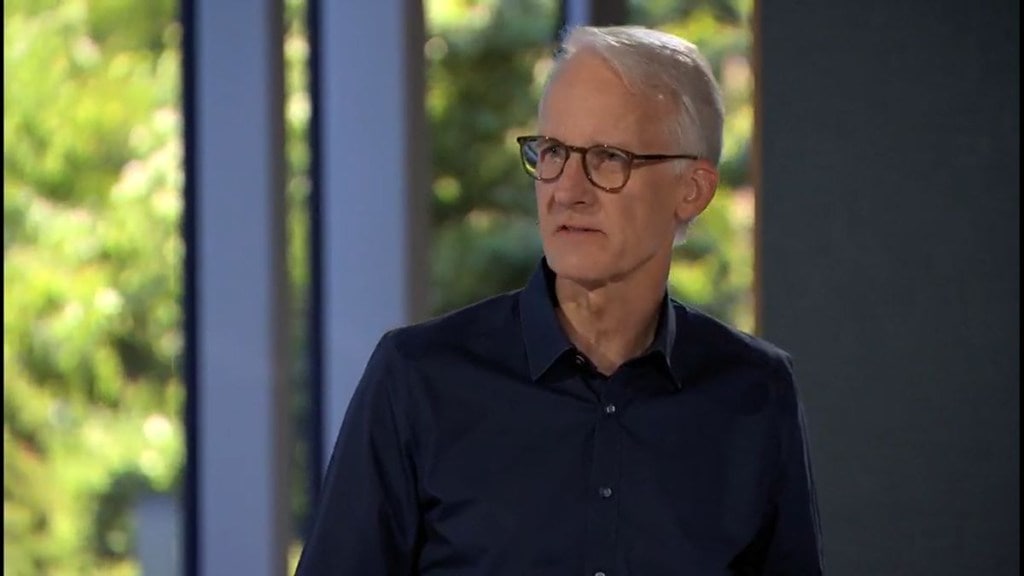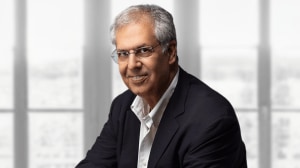Chronic diseases which include cardiovascular diseases, cancers, chronic respiratory diseases, and diabetes continue to be a major burden globally. Amid the rising incidences of these disorders, global players like Novo Nordisk are playing a crucial role in this segment.
With a focus on disease areas like Type 1 Diabetes, Type 2 Diabetes, Obesity, Hemophilia, Sickle-Cell Anemia, Cardiovascular diseases and MASH, Novo Nordisk has grown drastically over the last 100 years.
In a recent global press briefing, Lars Fruergaard Jørgensen, CEO, Novo Nordisk Global highlighted the company wants to now focus on innovative measures to prevent these chronic conditions. He also said that the company is sustaining its leadership within diabetes, and obesity, establishing a presence within the cardiovascular segment and emerging therapy areas, and then solidifying its leadership in rare diseases where they focus on rare blood and endocrine disorders.
During the briefing, Dr. Marcus Schindler, EVP, Research & Early Development and Chief Scientific Officer, Novo Nordisk Global emphasised on building on the leadership in obesity and moving toward prevention and cure of serious chronic diseases. On the sidelines of the press conference, in an exclusive interaction with Financial Express.com, Dr. Schindler talked about upcoming R&D plans, news innovations and their impact on the India market, preventive healthcare, and lots more. Excerpts:
What is the current position of Novo Nordisk in the segment of drug discovery and how do you see the growth of this segment in a country like India as compared to other global regions?
We feel that, in pharmaceutical drug discovery, we make a fundamental impact on what should matter the most to us, which is your health and which is important. It is a good confidence builder that we are moving beyond just treating just symptoms or pieces of a disease to go actually to, you know, fundamental health. I think our field has a lot of opportunities to develop. With respect to India and as you’re aware we have quite a big site in Bangalore. And quite a number of our colleagues working on AI and machine learning are located there. So we’re also really trying to use that capability base to advance our work significantly.
Your blockbuster drugs Wegovy and Ozempic are now global sensations. So when we’re talking about research and innovation, what more is planned by Novo Nordisk in this obesity segment as we all know India has a huge burden of chronic conditions like obesity and diabetes. So how can your plan of innovation and research be beneficial to a country like India?
One of the interesting parts of my role is that many things cannot be planned. You just hope you have good ideas and this is what the people you know before me did 25 years ago. And then you hope those ideas turn into reality. So what we know today of obesity as I said earlier this morning, is at least now we have a molecule where we can significantly impact weight and comorbidities and cardiovascular conditions. If it’s, but we are at the very beginning, at the tip of the iceberg, to understand what drives some people to become massively obese very quickly, you know, others seem to be more resistant. Some people might find it easier to lose weight and maintain a low weight. For others, it’s nearly impossible. So we’re seeing a heterogeneity in this patient population. And to be honest, something similar is also true, I would say for diabetes. And I think we need first of all understand what is the science behind those different segments of patients.
I think it’s really important. A large population sometimes helps because you get actually a big spread of, you know patients in your trials, but also then in the real world from which you can learn from. And I think that is that is incredibly important for us but it is also interesting even for a scientist to understand also how healthcare systems operate. So what is the standard of care in a particular country, you know what additional innovation can I bring into this market? You know what different innovation can I bring to to another market and what is practise? Some countries injectables are preferred over oral drugs for example, and vice versa. And that really is for us a learning also that there is not a one-size-fits-all maybe for the entire globe. But there is a little bit of differentiation and that comes back to my job is can I make molecules, can I make potential novel therapies that cater for all of those segments.
So other than obesity, what are your upcoming RND plans for the other disease segments that are there in your portfolio?
We will continue to innovate in diabetes really to improve health outcomes, but also reduce the burden of disease of type 2 diabetes, particularly also type 1 diabetes patients. We are strengthening our investment in cardiovascular. We have multiple partnerships. One is with the Japanese company HeartSeed where we actually work on making cardiomyocytes for people with late-stage heart failure. We’ve also just acquired a German biotech company that has a potential disease-modifying approach also for advanced heart failure. So that that will continue. We’re driving innovation in MASH hepatitis and chronic kidney disease. So for all of those, I think we’re building a rather comprehensive research pipeline. And then apart from those cardiometabolic diseases, as you are aware, we’re also working in rare endocrine and rare blood disorders, which sort of is the other part of our legacy in Nova and orders in particular in, hemophilia and we’re very passionate about, you know, driving innovation also in in this space.
There was also a lot of conversation about preventive healthcare in the morning. So I would like to understand how Novo Nordisk is looking at preventive healthcare as an opportunity both business-wise and patient care wise?
We all feel that currently we are treating people who are already sick and sometimes we’re treating them when they’re actually very well advanced in their diseases and it gets much harder to then sometimes reverse the disease. So one aim could be to start early and one of the, you know, big goals, we have set ourselves is to set up a transformational prevention unit for obesity to understand what are the medical and scientific reasons that could be genetics, it could be the diet you take, it could be the environment you live in, the family history, you have the area you live in, why some people develop obesity and whether we could do something about it, you know, to be stopped or slowed down in the first place. The really interesting part in here I find is that this is not just a problem that we alone can solve as a pharmaceutical company. It requires engagement between healthcare providers, governments, policymakers, but also potentially the food industry. So all the players who play a role in obesity or a healthy lifestyle and this is when we really want to build sort of a crystallisation point for all of those parties to come together to come to a realistic solution because we feel that if we prevent disease in the first place, it will beneficial not only to individuals but also to healthcare systems in the long run.
Do you have any specific plans for diseases like sickle cell anemia? If you could highlight some aspects of it? Also are you planning to explore new therapeutic areas?
Absolutely. We’re active in sickle cell disease. We acquired a small company called Forma Therapeutics a couple of years ago with their portfolio of sickle cell disease treatments. We’re also actually exploring opportunities to use sort of a gene therapy…gene editing approach, which truly would be a game-changer. And some of those rare diseases are really interesting areas to engage in because we can feel that the novel technologies that we’re seeing on the rise in novel treatment technologies make themselves now useful for some of those genetically driven diseases.








